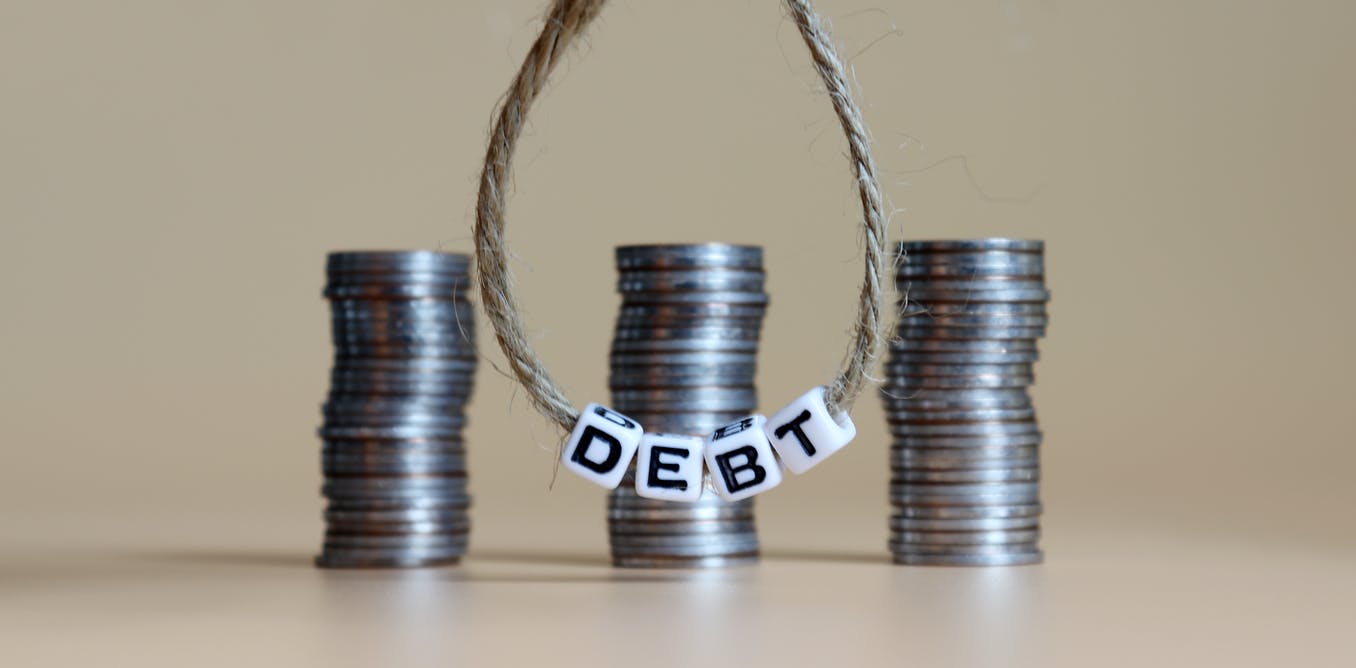Personal debt is not a crime. To be precise debt is what has helped the world’s richest people to create business empires. However, debt has driven many entrepreneurs to depression and suicide in other cases. If you take a look at Kenya for example debt has become a bigger pandemic due to the maltitudes of mobile and microlenders that are currently operating with little or no regulation.
So we borrow money from friends, family, partners, and banks. This just drowns us deeper in debt and depression. So what do you do what you are heavily indebted? Take your time and follow my steps. They work for me and i believe they can work for you as well.
The first tip with managing debt is communication. communication to your creditors is key. Everyone with even a little bit of debt has to manage their debt. If you just have a little debt, you have to keep up your payments and make sure it doesn’t get out of control. On the other hand, when you have a large amount of debt, you have to put more effort into paying off your debt while juggling payments on the debts you’re not currently paying.
Make a list of your debts, including the creditor, total amount of the debt, monthly payment, interest rate, and due date. You can use your credit report to confirm the debts on your list. Having all the debts in front of you will allow you to see the bigger picture and stay aware of your complete debt picture. Debt reduction software can make this process easier. Once you have a handle on your debt and your income, you can calculate your Debt to Income ratio (DTI). This ratio tells you how much of your income is going toward debt payments. To find yours, divide your debt payments by your income, and multiply by 100. For example, $1,200 of monthly debt divided by $3,000 of monthly income is 0.4 x 100 = 40%. The lower this number is, the better, and tracking it can help you understand your finances more clearly.
Don’t just create your list and forget about it. Refer to your debt list periodically, especially as you pay bills. Update your list every few months as the total amount of your debt changes.
2) What is good debt and bad debt?
While all debt costs money and needs to be repaid, not all debt is equal. There is ‘good debt’ and ‘bad debt’ and what separates the two is simply the ability for that debt to help you build wealth over time.
For instance, debt could be viewed favourably if you’re using it to invest in an asset, such as property or shares, which (although not guaranteed) may generate an income over time, and/or grow in value, so you can sell it for a profit at a later date.
Bad debt on the other hand is money you borrow for things that won’t see you achieve a financial gain, such as day-to-day expenses, like groceries, in addition to things like clothes and holidays.
Debt management skills are handy to have when it comes to managing money, saving, and planning for the future. If you’re looking for some tips, the following strategies could help you to pay off your debts sooner.
3) Work out what debts you have and what they total
If you’re trying to figure out how to manage your debts, a good starting point would be to make a list of how much you owe and to which providers, and how much you pay in fees and interest to each.
While this could be a slightly unpleasant wakeup call, it will give you a clear view of exactly where you’re at, and how different interest rates and fees could affect the amount you pay back.
4) Compare what you earn, owe, and spend
Apart from identifying exactly what you owe, it may also help to be across how much money you’ve got coming in, how much cash is required for the essentials and where the rest of your cash might be going.
This will help you identify where there may be room for movement and where you could extract a little bit extra to add to your repayments. Our Budget calculator could help you crunch the numbers.
5) See if you can consolidate your loans into one
Multiple debts can mean multiple fees and interest charges, which is why consolidating your debts into a single loan, with a lower interest rate and lower fees, could help you to save money.
If you roll your loans into one, it may also be easier to manage because you’ll potentially only need to make one repayment rather than having to juggle several.
However, before you make any decisions, you’ll want to look into whether your lender is licensed by ASIC and if you’ll really be saving money once you factor in interest rates, fees and any additional charges. Also, keep in mind if you don’t make your repayments on time, you may end up paying more.
6) Pay your debts on time
Time management and debt-management often go hand-in-hand, as paying things when they’re due can often help you to avoid things, such as late fees and added interest charges.
Consider setting up alerts to remind you when your payments are due or look into whether you might benefit from paying by direct debit.
Remember, late payments may also lead to black marks on your credit report, which could affect your ability to borrow money, as it reveals to lenders whether you’ve been paying your bills on time.
7) Try to pay the full amount outstanding rather than the minimum owing
When you’re making repayments, you typically get two options – to pay the full amount that you owe, or to pay the minimum amount owing.
While it might be tempting to only pay the minimum amount owing, keep in mind that you could still incur interest on the balance that’s leftover, which means you may end up owing more money. On the flip side, if you’re able to pay the full amount, typically you won’t be charged any interest at all.
8) Look at whether you can afford to make extra repayments
Another idea is to make extra repayments on top of your regular repayments. This could help you pay off what you owe at a faster rate and you’ll typically pay less interest, which could mean thousands of dollars in savings, depending on how much you owe.
However, before making extra repayments, check out the conditions of your loan, as there are some lenders that might charge you for paying off your debt early.
9) Shop around for a better deal
High-interest rates and added fees can really affect how much you pay back, on top of the original amount you borrowed.
With that in mind, it might be worth shopping around – and there are a number of comparison websites out there that could help do some of the legwork for you.
Have a backup plan
Expecting the unexpected always goes a long way when it comes to your finances. Your loan provider could increase interest rates or change their repayment terms, or you might experience changes in employment or health, which could prevent you from working or making repayments.
By having a contingency plan, such as an emergency savings fund, you could potentially avoid missing repayments, or accumulating more debt.
Late payments make it harder to pay off your debt since you’ll have to pay a late fee for every payment you miss. If you miss two payments in a row, your interest rate and finance charges will increase.
If you use a calendaring system on your computer or smartphone, enter your payments there and set an alert to remind you several days before your payment is due. If you miss a payment, don’t wait until the next due date to send your payment, by then it could be reported to a credit bureau. Instead, send your payment as soon as you remember that it was missed. A budget can help you stay out of debt, and it can help you climb out. It allows you to see how much money you earn and where that money is going. Create a bare-bones budget that allows you to pay for necessities like your rent or mortgage and utilities. Set aside everything else to pay off your debt as quickly as possible.
Create a Monthly Bill Payment Calendar
Use a bill payment calendar to help you figure out which bills to pay with which paycheck. On your calendar, write each bill’s payment amount next to the due date. Then, fill in the date of each paycheck. If you get paid on the same days every month—the 1st and 15th—you can use the same calendar from month to month. But, if your paychecks fall on different days of the month, you’ll need to create a calendar every month.
If you can’t afford to pay anything more, at least make the minimum payment. Of course, the minimum payment doesn’t help you make real progress in paying off your debt. But, it keeps your account in good standing, which avoids late fees. When you miss payments, it becomes harder to catch up, and eventually, your accounts could go into default. While you’re working on paying down debt, stop using credit cards. Start carrying cash instead. Stick to the budget you created and only buy what you can pay for with cash.
Decide Which Debts to Pay Off First
Paying off credit card debt first is often the best strategy because credit cards have higher interest rates than other debts.1 Of all your credit cards, the one with the highest interest rate usually gets priority on repayment because it’s costing the most money.
Pay Off Collections and Charge-Offs
You can only pay as much on your debt as you can afford. When you have limited funds for repaying debt, focus on keeping your other accounts in good standing. Don’t sacrifice your positive accounts for those that have already affected your credit. Instead, pay those past due accounts when you can afford to do it.
Build an Emergency Fund to Fall Back On
Without access to savings, you’d have to go into debt to cover an emergency expense. Even a small emergency fund will cover little expenses that come up every once in a while.
First, work toward creating a small emergency fund—$1,000 is a good place to start. Once you have that, make it your goal to create a bigger fund, like $2,000. Eventually, you want to build up a reserve of three to six months of living expenses.
Recognize the Signs That You Need Help
If you find it hard to pay your debt and other bills each month, you may need to seek outside help, like a credit counseling agency. Other options for debt relief are: These each have advantages and disadvantages, so weigh your options carefully.
Frequently Asked Questions (FAQs)
What is debt consolidation?
Debt consolidation is rolling your debts into a product that offers a single payment and a lower interest rate. Popular debt consolidation tools include personal loans and 0% interest balance-transfer credit cards.
What is debt settlement?
Debt settlement is when you negotiate with a creditor to settle your debt for less than you owe. Creditors will typically only settle a debt that isn’t current. If you stop making payments in order to settle debt, your credit score will drop due to the missed payments. You can hire debt settlement companies, but they charge fees for resolving your debt. You can settle debt on your own or consider another option like
Debt managing tips inspired by: AMP.COM.AU & THE BALANCE.COM









